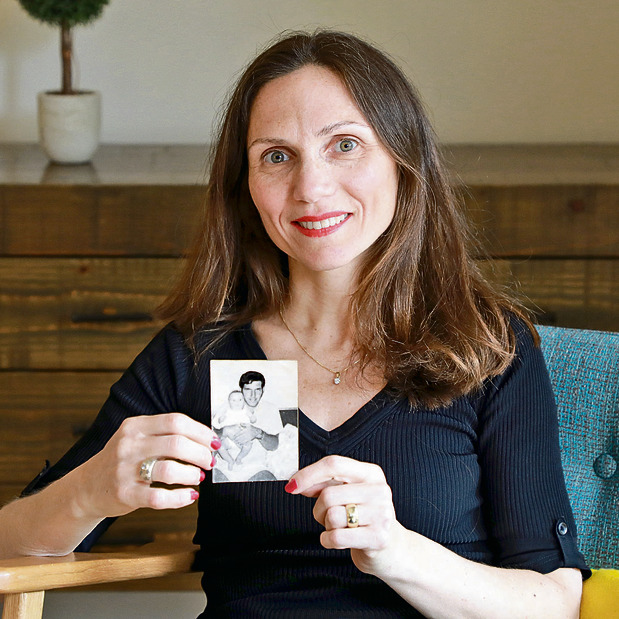Poli Kovdala-Zeidfunden wonders whether it would have been better to know her father before his life was snatched from her when she was just a baby, or whether not knowing him was for the best: ‘The pain is largely because I never got to know him.’
“The time goes by somehow and everything is fine. What I’m asking from you is that you not be worried, and I hope that once everything is over, I’ll come home quickly. Kisses to you and the little girl.”
These were the words written on the last postcard from Shimon Zeidfunden to his wife, to which his daughter Poli Kovdala-Zeidfunden now clings as the sole memory of her late father who fell in Israel’s 1973 Yom Kippur War.
“My father was only 28 years old. I was a six-month-old baby girl who had one picture, in which my father, who was a handsome man, held me. And that’s it,” says Poli, who was to speak at the IDF Memorial Service in Ra’anana on behalf of the IDF Widows and Orphans Organization.

“Many times the thought crosses my mind: Would it have been more preferable to know my father and then something happen to him, meaning I would have been separated from him, or the way things are, the way I was born, as a small baby straight into the great pain and bereavement,” Poli asks.
“I think I would have preferred to be with him for a few years. That way, if something had happened to him, at least I would have had memories,” she answers her own question. “The pain is largely because I never got to know him.”
Shimon was born in Tel Aviv to parents Tzila and Yeshayahu. He served in the Armored Corps and married Hedva. The two lived together in Ra’anana and he was conscripted for reserve duty on Yom Kippur itself, during which he participated in battles in the Golan Heights region as a half-track driver. He was hit by the shelling of Syrian planes in the Mazraat Beit Jen area in Syria.
In Poli’s childhood room hangs the only cherished picture of her and her father together. “My father was supposed to celebrate his 72nd birthday on May 1 if he had only survived,” she lamented.
“My mother always tells me how happy he was when I was born, how he always watched over me and protected me. Despite the great pain, my mother made sure I had a happy childhood.”
However, for Poli, the mere sight of her friends’ fathers as a child was enough to remind her of the the paternal absence from her life.
“But I remember the moments when I would see my friends’ fathers waving at them and my heart would wince in pain. Growing up without a father is a kind of internal disability,” she confessed.
“I am now 44, married to Tomer and am a mother of three children: Shai, 11, Shira, 8, and Itai, 6. I know that he is watching me from above, and he saw me when I enlisted proudly in the Armored Corps where he served. I keep thinking about him all the time, about a father I wanted so much to be with me in my life.”
As reported by Ynetnews
